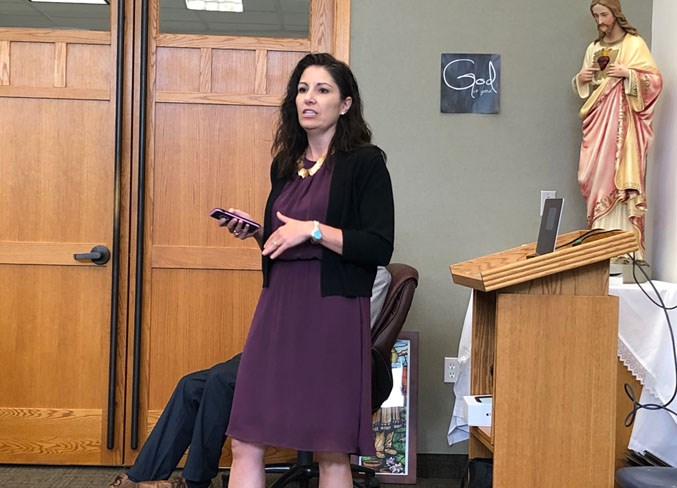Lakeland Catholic School District (LCSD) is continuing to put an emphasis on improving numeracy and literacy skills in their students.
Literacy coordinator Julie Chorney and numeracy coordinator Colin Desnoyers presented to the board of trustees during their June 19 meeting, outlining the resources available for teachers and what’s being done to support student learning.
Promoting teacher supports to help improve literacy
Chorney said there was quite a bit of time spent connecting new, second, and third-year teachers together across the district.
”They worked together a lot, and it’s great because they can provide support and resources for each other,” she explained. “When you’re newer to a district, sometimes you think of all those new things that the next first-year teacher won’t know, so it’s really fun to see them connecting in that way.”
They coined the meetings ‘Engaged Thinkers Cohort’, which had teachers coming together once every couple of weeks to discuss instructional strategies.
”We would all make a commitment, ‘I’m going to try it two times a month’ or ‘I’m going to try it three times this month,’” Chorney said, adding it wasn’t for evaluation, but for participants to discuss what strategies succeeded and what didn’t.
Reading assessments of students was a focus this year for Lakeland Catholic. Chorney said a main talking point was how to best utilize the reading levels that go along with the assessments.
”At some points, we thought it labelled the child. What we really look at now is the levels are about the books. Reading levels only level books, so that we can get to know the child and match a book with them.”
Guided reading was one aspect LCSD took another look at this year, which Chorney believes had a “huge impact on students in our schools.”
They revamped how the program is administered, which has taken some getting used to in the classroom.
”In our previous model of guided reading, most teachers read the book start to finish with their students at the table. We streamlined it a bit, now teachers are (reading) a chunk of the books. You don’t have to read the whole thing, and you can revisit the book,” she detailed. “You can revisit a book for many reasons, and that’s helping a lot of our teachers see you can use the resources we have.”
Empowering Writers was another popular resource. It encourages teachers to move away from the typical critique of telling students to ‘add more details’ in their writing, and instead outlines practices of good writers.
Numeracy a priority across the district
Desnoyers took a more in-depth look at where LCSD was, where they are now, and where they’re going in the future when it comes to numeracy.
On a district-level last year, helping new teachers to understand Alberta’s programs of studies, assisting educators with the planning and programming for numeracy within their units, and helping teachers know the effectiveness of assessments, and how to create and utilize numeracy skill-based assessments were some priorities.
Desnoyers met with school administrators and teachers to assist them in being able to recognize areas they needed help in.
For teachers, those areas included more time with the numeracy coach, revisiting math starters, and continuing to offer them ways to assess a student’s understanding of the subject.
One aspect that was expanded for the 2018/19 school year, was assisting staff when it comes to planning for inclusive education students, with staff reaching out to Desnoyers for aid.
”I’ll go in and work with the student, assess where the student is at, help set up some programming with the classroom support teacher and student assistant, and then help roll out the program,” he detailed.
“I go back in every couple of weeks to reassess where the students at, and see where we need to fix the programming.”
For their future goals, LCSD created focuses for each grade-level to give the schools an overview of areas that need to be addressed and allows them to set their own priorities for next year.



